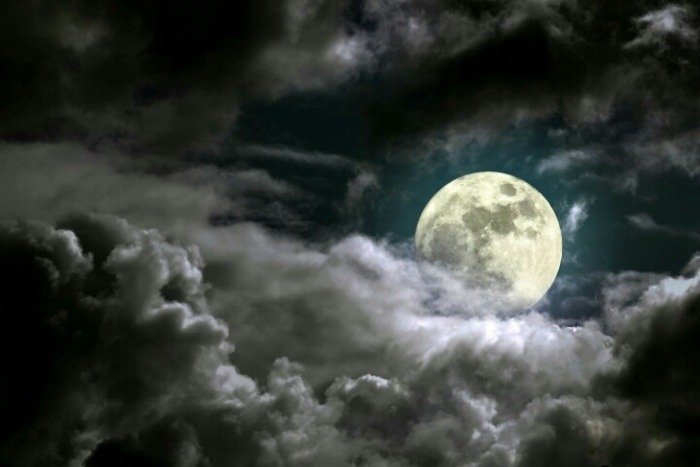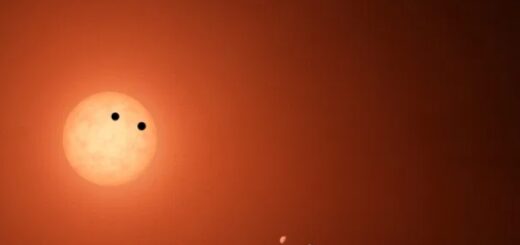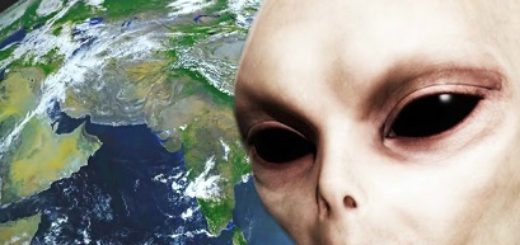Lunar Effect Examined: How Does The Full Moon Affect Human Health?
–In many ancient historical accounts we find stories of how human have been affected by the full Moon and supermoon. Often these people have displayed odd behavior that includes suicide, violence and sleepwalking. People have also complained they have trouble sleeping around the full Moon.
We have previously discussed how solar flares affect human health – our mind and body. Now it’s time to take a closer look at the Moon.
The lunar theory, known as the lunar effect, is based on the assumption that there is a connection between Moon cycles and human behavior. What scientific proof is there that can shed more light on how the full Moon and supermoon affect human health?
Since ancient times, people have said “there must be a full Moon out there” in an attempt to explain weird happenings at night.

The word lunacy, state of being a lunatic (insane) stem from luna, the Latin word for moon. It is believed that people were more likely to show erratic behavior during a full moon.
Belief in the “lunar lunacy effect,” or “Transylvania effect,” as it is sometimes called, persisted in Europe through the Middle Ages, when humans were widely reputed to transmogrify into werewolves or vampires during a full Moon.
Today, many scientists dismiss the lunar effect theory and say there are no correlations between specific stages of the roughly 29.5-day lunar cycle and behavior in humans or other living things.
But as we all know a coin has two sides. There are also scientists who state they have found evidence that the full Moon triggers strange behavior and has affect on human and other living creatures’ health.
It has been proved that the Moon is sometimes responsible for the emotional states of people, and it also determines the speed of growth, plant circulation and animal behavior.
Moreover, this influence is often considered to be as important as the influence of the Sun, and some researchers believe that without the Moon lives of people and of nature would be impossible.
This also applies to liquid level in living organisms. Processes occurring at that time in nature rapidly accelerate and upon fully reach their climax. That is why some of us are more likely to complain about sleep disorders and hyperactivity. We are at this time also more irritable and get headaches.
It is possible that most affected during this period are the mentally ill, who feel strongly when fully aroused, and even get desperate and uncontrollable anger. Hence, in many languages words for people insane derived from the word ‘luna’ – the Moon.
Researchers from the American Yale University who have been studying this phenomenon are of the opinion that full increase in the number of crimes, especially sexual violence occurs during full Moon. Some statistics also say that at the time of the full Moon there are more car accidents, heart attacks, robberies, murders or suicide attempts.
For example, scientists say that they have found the first evidence full moon can cause sleep problems.
During an experiment, researchers studied 33 volunteers in two age groups in the lab while they slept. Their brain patterns were monitored while sleeping, along with eye movements and hormone secretions.
The data show that around the full moon, brain activity related to deep sleep dropped by 30 percent.
People also took five minutes longer to fall asleep, and they slept for twenty minutes less time overall.
“The lunar cycle seems to influence human sleep, even when one does not ‘see’ the moon and is not aware of the actual moon phase,” says Christian Cajochen of the Psychiatric Hospital of the University of Basel.
In another study conducted by a group of scientists from the Eastern Ontario Research Institute, 5812 children from five continents where examined to see if their sleeping patterns changed or if there were any differences in their daily activities. The result of the study showed that there was only 1% sleep alteration in full moon.
Researchers have also examined the influence of the gravitation of the Moon on the frequency of births in Kyoto, Japan. In their study, they discovered that more babies were born when the Moon was the closest to Earth, when the gravitational pull is the strongest.
Based on the result of their study, scientists wrote that “there was a significant increase in the cases of births, when the gravitation of the Moon to the Earth was less than 31.5 N. Results of this study suggest that the gravitation of the Moon has an influence on the frequency of births.”
In the book Moonstruck: How lunar cycles affect life, Emeritus Professor Ernest Naylor discusses the possibility that many organisms really are influenced indirectly, and in some cases directly, by the lunar cycle.
Breeding behavior among some marine animals has been demonstrated to be controlled by internal circalunar biological clocks, to the point where lunar-daily and lunar-monthly patterns of Moon-generated tides are embeddedin their genes. Yet, intriguingly, Moon-related behaviors are also found in dry land and fresh water species living far beyond the influence of any tides.
“Many other marine animals such as some crabs, sea-lice, worms and midges have been shown to exhibit moon-related and tide-related patterns of behaviour even when kept in laboratory aquaria away from the influence of tide and moon
Some animals on land, away from the influence of ocean tides, also show behaviors related to the moon, confirming that the linkage can be direct and is not always indirect through the effects of moon-generated tides,” Professor Naylor said.
Professor Naylor asks a valid question: If Moon-clock genes occur in other animals, might they also exist in us?
Written by Cynthia McKanzie – MessageToEagle.com Staff Writer



 Creators of mankind
Creators of mankind Description of “Tall white aliens”
Description of “Tall white aliens” Where they came from?
Where they came from? About hostile civilizations
About hostile civilizations The war for the Earth
The war for the Earth “Tall white aliens” about eternal life
“Tall white aliens” about eternal life Video: “Nordic aliens”
Video: “Nordic aliens” Aliens
Aliens Alien encounters
Alien encounters The aliens base
The aliens base UFO
UFO Technology UFO
Technology UFO Underground civilization
Underground civilization Ancient alien artifacts
Ancient alien artifacts Military and UFO
Military and UFO Mysteries and hypotheses
Mysteries and hypotheses Scientific facts
Scientific facts


















